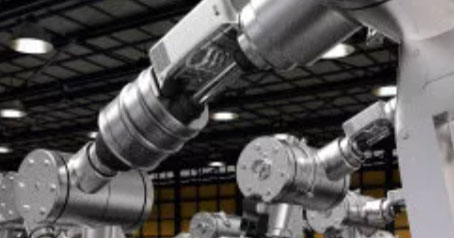The world of hydraulic systems is undergoing constant evolution, driven by the need for improved efficiency, reduced energy consumption, and enhanced performance. Among the key components at the forefront of these innovations is the hydraulic charge pump. In this blog, we'll explore some of the recent advancements in hydraulic charge pump technology that are reshaping industries and raising the bar for hydraulic system efficiency.
Variable Displacement Charge Pumps
Traditional hydraulic charge pumps operate at a fixed displacement, meaning they deliver a constant volume of fluid per revolution. However, variable displacement charge pumps have emerged as a game-changer. These pumps adjust their displacement based on the system's demand, delivering only the necessary amount of fluid. This not only saves energy but also minimizes wear and tear on system components, ultimately prolonging the system's lifespan.
Efficient Hydraulic Circuitry
Innovations in hydraulic charge pumps are often accompanied by advancements in hydraulic circuitry. Modern hydraulic systems incorporate intelligent circuit designs that optimize fluid flow and pressure distribution. This allows for smoother operation and reduced pressure losses, translating to improved overall efficiency. The integration of efficient circuitry with advanced charge pumps creates a synergy that maximizes performance.
Electro-Hydraulic Charge Pumps
The marriage of electronics and hydraulics has led to the development of electro-hydraulic charge pumps. These pumps utilize electronic controls to modulate pump displacement and optimize system pressure. By continuously adjusting pump output, electro-hydraulic charge pumps can match the system's requirements in real-time, leading to precise pressure control and energy savings.
Noise Reduction and Vibration Control
Hydraulic systems have often been associated with noise and vibration issues. However, modern hydraulic charge pumps are designed with noise reduction and vibration control in mind. Enhanced pump designs, improved materials, and advanced manufacturing techniques contribute to quieter and smoother operation. This not only improves the working environment but also extends the service life of the system. Sensor technology plays a pivotal role in the evolution of hydraulic charge pumps. Smart sensors can monitor various parameters such as fluid temperature, pressure, and pump performance in real-time. This data can be fed into control algorithms that optimize pump operation and alert operators to potential issues before they escalate. The proactive approach enabled by smart sensors prevents costly downtime and maintenance.
As industries continue to demand higher efficiency, lower energy consumption, and enhanced performance from hydraulic systems, the role of hydraulic charge pumps becomes increasingly crucial. Innovations such as variable displacement, electro-hydraulic control, and intelligent sensor integration are reshaping the landscape of hydraulic technology. These advancements not only address existing challenges but also open doors to new possibilities in various sectors, from manufacturing to construction and beyond. Embracing these innovations is essential for staying competitive in a rapidly evolving technological landscape.
 French
French
 Portuguese
Portuguese
 Russian
Russian
 German
German
 Spanish
Spanish
 Japanese
Japanese
 Korean
Korean
 Irish
Irish
 Greek
Greek
 Turkish
Turkish
 Italian
Italian
 Danish
Danish
 Romanian
Romanian
 Indonesian
Indonesian
 Czech
Czech
 Afrikaans
Afrikaans
 Swedish
Swedish
 Polish
Polish
 Basque
Basque
 Catalan
Catalan
 Esperanto
Esperanto
 Hindi
Hindi
 Lao
Lao
 Albanian
Albanian
 Amharic
Amharic
 Armenian
Armenian
 Azerbaijani
Azerbaijani
 Belarusian
Belarusian
 Bengali
Bengali
 Bosnian
Bosnian
 Bulgarian
Bulgarian
 Cebuano
Cebuano
 Chichewa
Chichewa
 Corsican
Corsican
 Croatian
Croatian
 Dutch
Dutch
 Estonian
Estonian
 Filipino
Filipino
 Finnish
Finnish
 Frisian
Frisian
 Galician
Galician
 Georgian
Georgian
 Gujarati
Gujarati
 Haitian
Haitian
 Hausa
Hausa
 Hawaiian
Hawaiian
 Hebrew
Hebrew
 Hmong
Hmong
 Hungarian
Hungarian
 Icelandic
Icelandic
 Igbo
Igbo
 Javanese
Javanese
 Kannada
Kannada
 Kazakh
Kazakh
 Khmer
Khmer
 Kurdish
Kurdish
 Kyrgyz
Kyrgyz
 Latin
Latin
 Latvian
Latvian
 Lithuanian
Lithuanian
 Luxembourg
Luxembourg
 Macedoniar
Macedoniar
 Malagasy
Malagasy
 Malay
Malay
 Malayalam
Malayalam
 Maltese
Maltese
 Maori
Maori
 Marathi
Marathi
 Mongolian
Mongolian
 Burmese
Burmese
 Nepali
Nepali
 Norwegian
Norwegian
 Pashto
Pashto
 Persian
Persian
 Punjabi
Punjabi
 Serbian
Serbian
 Sesotho
Sesotho
 Sinhala
Sinhala
 Slovak
Slovak
 Slovenian
Slovenian
 Somali
Somali
 Samoan
Samoan
 Scots Gaelic
Scots Gaelic
 Shona
Shona
 Sindhi
Sindhi
 Sundanese
Sundanese
 Swahili
Swahili
 Tajik
Tajik
 Tamil
Tamil
 Telugu
Telugu
 Thai
Thai
 Ukrainian
Ukrainian
 Urdu
Urdu
 Uzbek
Uzbek
 Vietnamese
Vietnamese
 Welsh
Welsh
 Xhosa
Xhosa
 Yiddish
Yiddish
 Yoruba
Yoruba
 Zulu
Zulu







